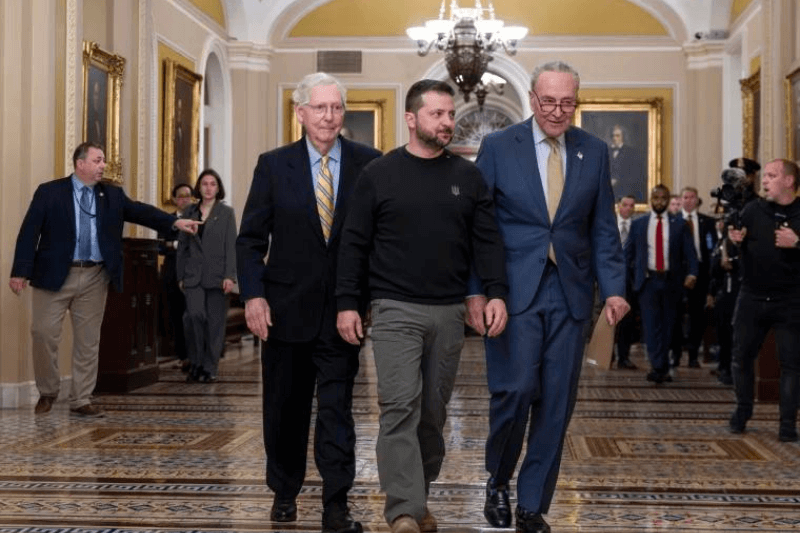
Is Zelenskyy’s Rhetoric a Tactic to Secure More Aid from Republicans?
Challenging Narratives: Examining Zelenskyy’s Plea for Aid
Ukraine’s President, Volodymyr Zelenskyy, returned to Washington, reigniting debates surrounding financial aid to his nation amid the ongoing conflict with Russia. While Zelenskyy’s call for additional aid is met with urgency, the narrative surrounding it deserves a closer look.
Dissecting JD Vance’s Critique
In a recent appearance on “The Ingraham Angle,” JD Vance criticized Zelenskyy’s return, labeling it a “most disgraceful charade.” Vance expressed concern over what he perceives as an “undignified process” where Zelenskyy demands $61 billion in taxpayer dollars, potentially labeling dissenters as “puppets” of Russian leader Vladimir Putin.
Challenges to Zelenskyy’s Approach
Vance, alongside host Laura Ingraham, pointedly contrasts Zelenskyy’s framing of critics as aligned with Putin against the pressing issues faced by rural America. The call for substantial aid prompts Vance to question the priorities, especially when inflation and job outsourcing impact local communities.
Border Security as a Sticking Point
One of Vance’s key contentions is Zelenskyy’s attempt to pressure Republicans to prioritize aid over border security. Vance rejects this notion, advocating for a balanced approach where substantive border control funding is secured before committing to another financial aid package for Ukraine.
Questioning Zelenskyy’s Rhetoric
Vance argues that Zelenskyy’s rhetoric is a strategic ploy to coerce Republicans into providing another “blank check” for Kyiv. He emphasizes the need for clear border control policies before committing to significant financial aid, urging a more thoughtful and responsible approach.
Keep Reading
Highlighting Dissent on Zelenskyy’s Leadership
Notably, Vance criticizes Zelenskyy for not confronting his European neighbors for financial aid with the same vigor. This raises questions about the consistency of Zelenskyy’s approach and his specific targeting of the United States for aid.
Complexities of Zelenskyy’s Leadership
Vance contends that Zelenskyy’s narrative as a defender of his country is challenged by his proactive stance in demanding more American taxpayer dollars while allegedly suppressing dissent within Ukraine.
Ingraham’s Reporting on Zelenskyy’s Speech
Laura Ingraham’s reporting on Zelenskyy’s speech adds another layer to the narrative. Zelenskyy’s statements that anyone “inspired by unresolved issues on Capitol Hill” is aligned with “Putin and his sick clique” showcase the diplomatic complexities surrounding aid discussions.
Reevaluating Ukraine’s Successes
Vance concludes by challenging the narrative of Ukraine’s success during the “summer offensive.” He argues that the territorial gains were minimal and warns against the risk of turning Ukraine into a permanent client state of the United States.
Redirecting Focus on Issues- Zelenskyy’s Rhetoric a Tactic to Secure More Aid from Republicans
A growing debate is whether Zelensky’s rhetoric a tactic to secure more aid from Republicans is ‘Ukraine’s needs’ or ‘part of a calculated political strategy’!
Vance redirects attention to pressing domestic issues, emphasizing the need to focus on challenges within the United States. He points out that redirecting substantial resources to support Ukraine’s government could strain resources needed to address critical problems at home.
In conclusion, while Zelenskyy’s plea for aid is critical for Ukraine’s stability, Vance’s critique sheds light on the need for a comprehensive and balanced approach. Balancing international aid commitments with addressing domestic concerns remains a challenge that requires careful consideration. As the debate unfolds, it becomes imperative to critically assess the motivations behind Zelenskyy’s words and whether they align with the genuine needs of his nation or are part of a calculated political strategy.




